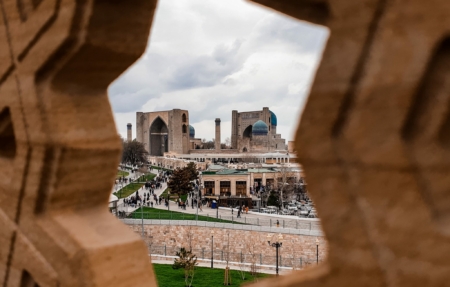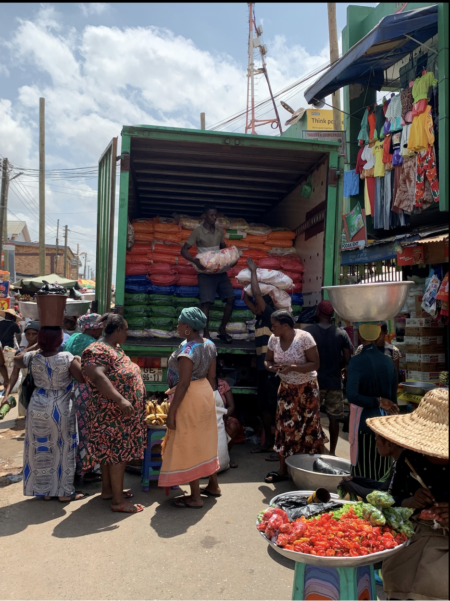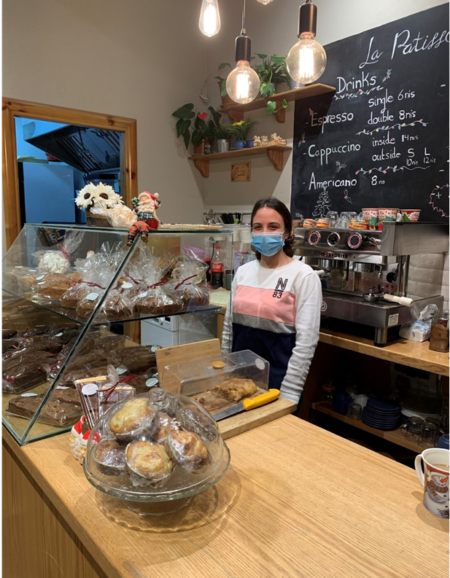What is the future of work?

In the Unstuck briefings, we create a curated collection of intelligence on a specific topic that we know is stuck, but also that with deeper observation and understanding can start the needed change. The briefings are always curated by people working in the field itself, who have realised that “business as usual” is no longer working.
Curators:
 1. What are the emerging themes on the future of work?
1. What are the emerging themes on the future of work?
 2. Key initiatives to follow
2. Key initiatives to follow
If you want to see the interventions happening in the field of work, follow the activities of these initiatives.
 3. Work on the ground
3. Work on the ground
What's our experience with new ways of approaching the future of work? See the UNDP's latest interventions in different parts of the world.
 4. What to read / watch / listen
4. What to read / watch / listen
| 🤏🏻 Beginners | 💪🏻 Advanced |
| 🎙️ Podcast: Informal Economy by WIEGO Women in informal employment: Globalising and Organising (WIEGO)’s podcast explores some of the most pressing issues faced by the world’s informal workers. The episodes are always to the point and feature experts from around the globe. | 💬 Panel discussion: Technology and the Future of Work(ers) in the Global South In April 2022 a number of economists, employment and labour experts from different parts of the world met to discuss the impact of technological innovation on the world of work(ers) within an analysis of the political economy of labour markets and the role of the state. |
| 📜 Study: What skills are needed for the Industrial Revolution 4.0? Deloitte and Global Business Coalition for Education bring a framework for business to “prepare the workforce for the fourth industrial revolution”. Read the study to learn how to respond to the mismatch between youth skills and employer needs and how to get ready for the jobs that don’t even exist today. | 📜 Report: State of Working, India 2021 This report documents the impact of one year of Covid-19 in India – on jobs, incomes, inequality and poverty. It also examines the effectiveness of policy measures that have thus far been undertaken to offer relief and support. Finally, it offers some policy suggestions for the near and medium-term future. |
| 🎙️ Podcast: The Development Podcast by The World Bank Group Hosts Paul Blake and Raka Banerjee talk to experts to reveal the latest data, research, and solutions in the development field. In the episode #16 As Covid-19 wreaks havoc on service workers, is the informal sector increasing global inequality? you'll get a deep dive into a new analysis of informal work around the globe | 🎙️ Podcast: The Future of Work The International Labour Organisation runs the podcast focused on different aspects of the future of work, including wage inequality, happiness at work, but also informal economy workers and their security and social protection. |
| 📣 Guide: Work4Progress India The Work4Progress (W4P) programme of the ”la Caixa” Foundation and Development Alternatives employs a unique social innovation approach to accelerate the growth of sustainable micro-enterprises, thereby creating large numbers of dignified and attractive jobs. In this document you will find many useful resources, like numbers, stories, case studies, but also publications created within the programme. | 📚 Book: Cracking the future of work More than 25 experts from Asia, Latin America, the Middle East & North Africa, and Sub-Saharan Africa transformed their valuable findings into this book with heterogeneous perspectives. This book aims to enrich the future of work debates with evidence from the Global South. This, in turn, is key for a policy agenda that needs context-specific and data-driven frameworks to promote the creation of high-quality jobs in developing countries amid the fourth industrial revolution. |
| 📚 Book: Adventures in Reinventing Work – Tales of Pioneers from Around the World If you're looking for some light reading about the future of work, have a look at these stories of pioneers from Netherlands, Brazil, Uganda and other countries who are creating and transforming organisations to enable a future that empowers and uplifts all of humanity. | 📜 Report: Innovative approaches for ensuring universal social protection for the future of work This paper provides a review of innovative approaches that countries have undertaken to close coverage and adequacy gaps, and to adapt social protection systems to changing circumstances and demands. Read the paper to learn more about various categories of workers who face social protection gaps. |
 5. For deeper learning
5. For deeper learning
The following is a list of webinars, lectures and talks for everyone who wants to develop a wider understanding of social innovation.
 6. In the news
6. In the news
Let's recap the important recent facts that matter.
- More than 2 billion workers make up the world's informal economy.
Read more
- 11% of women-led enterprises were permanently closed during the Covid-19 lockdown in India, which has remained the case since lockdown.
Read more
- Around 126 million, or 30%, of employed youths remain in extreme or moderate poverty despite having a job.
Read more
 7. Radical observations
7. Radical observations
What are the key areas where the informal economy can be included?






